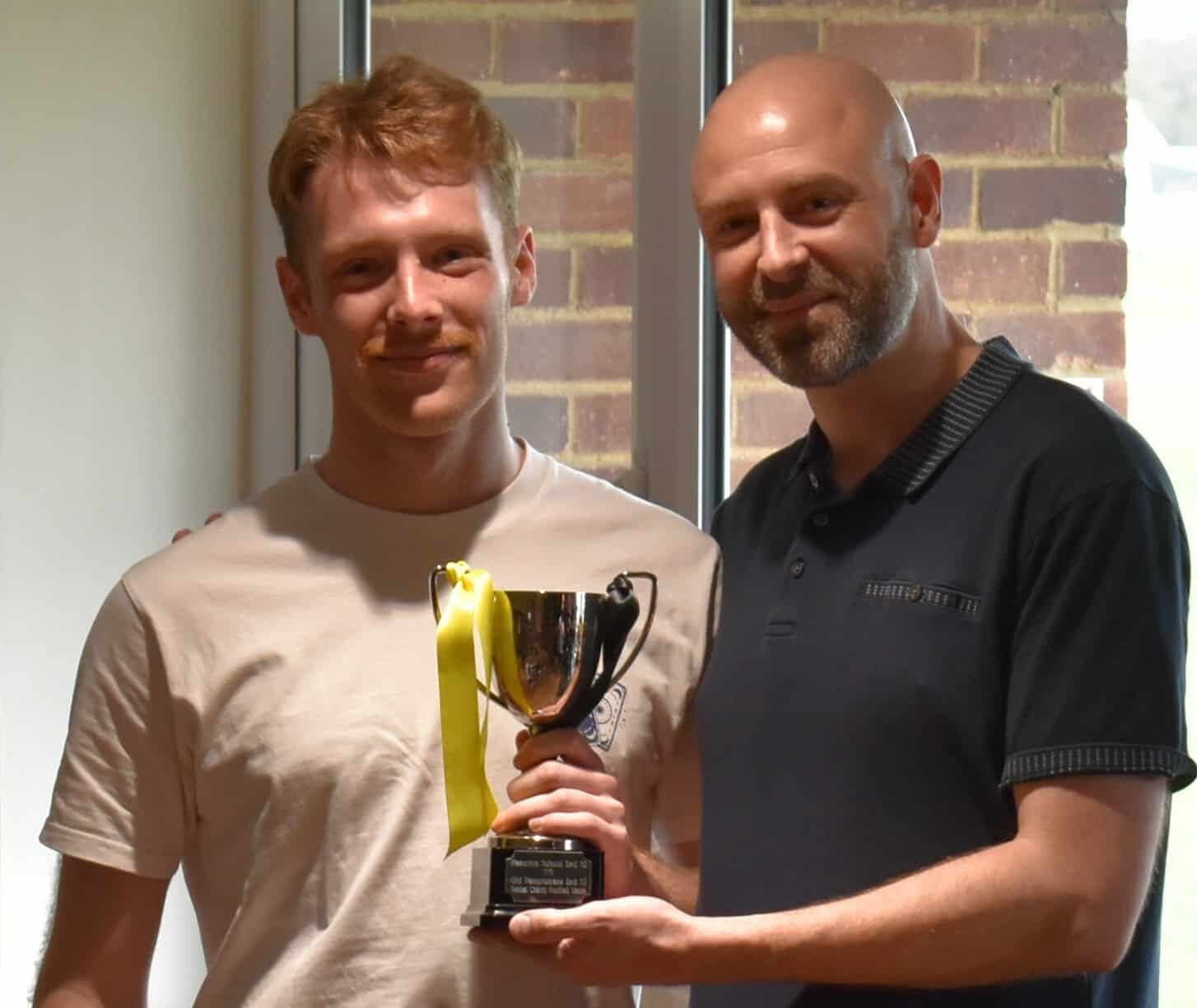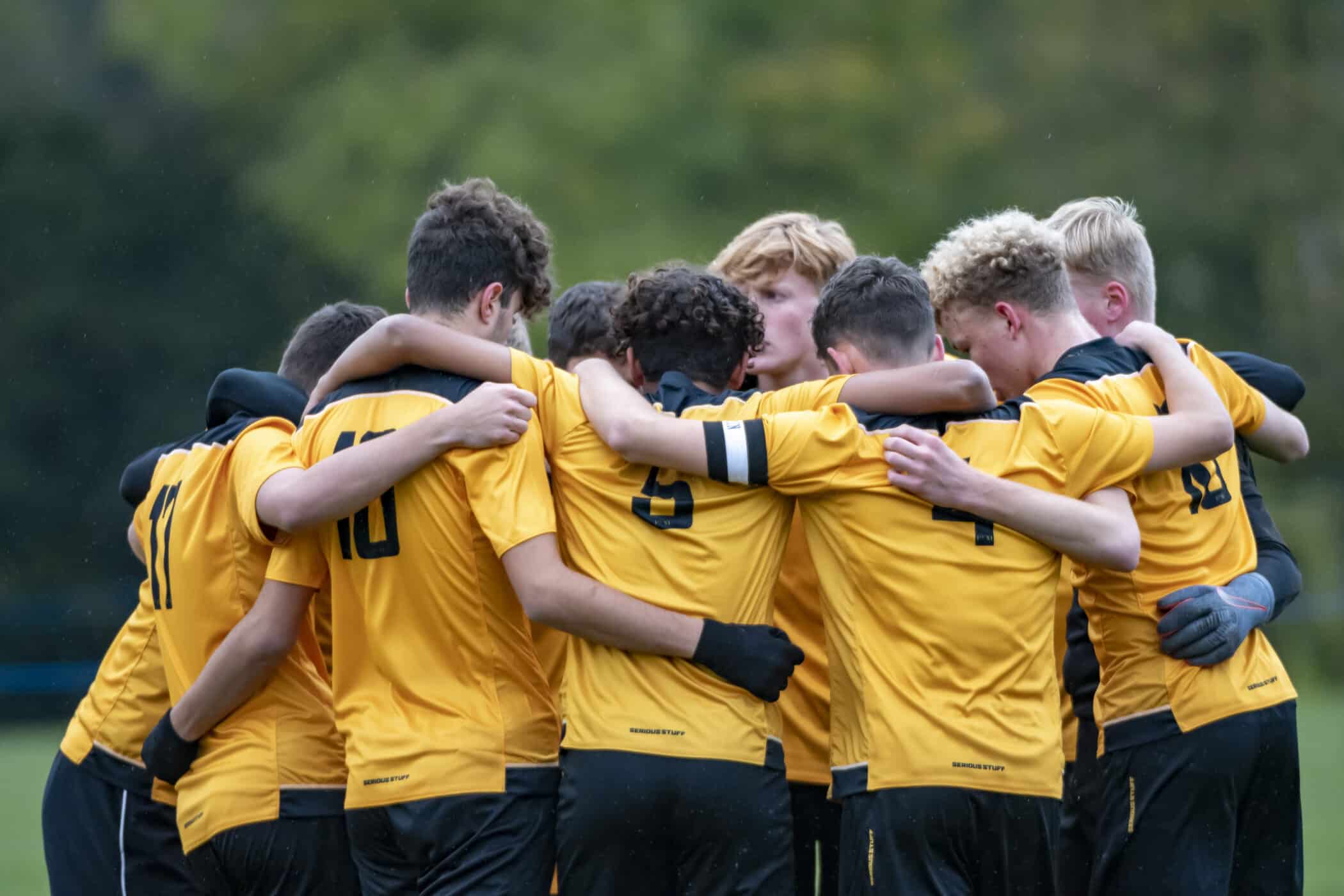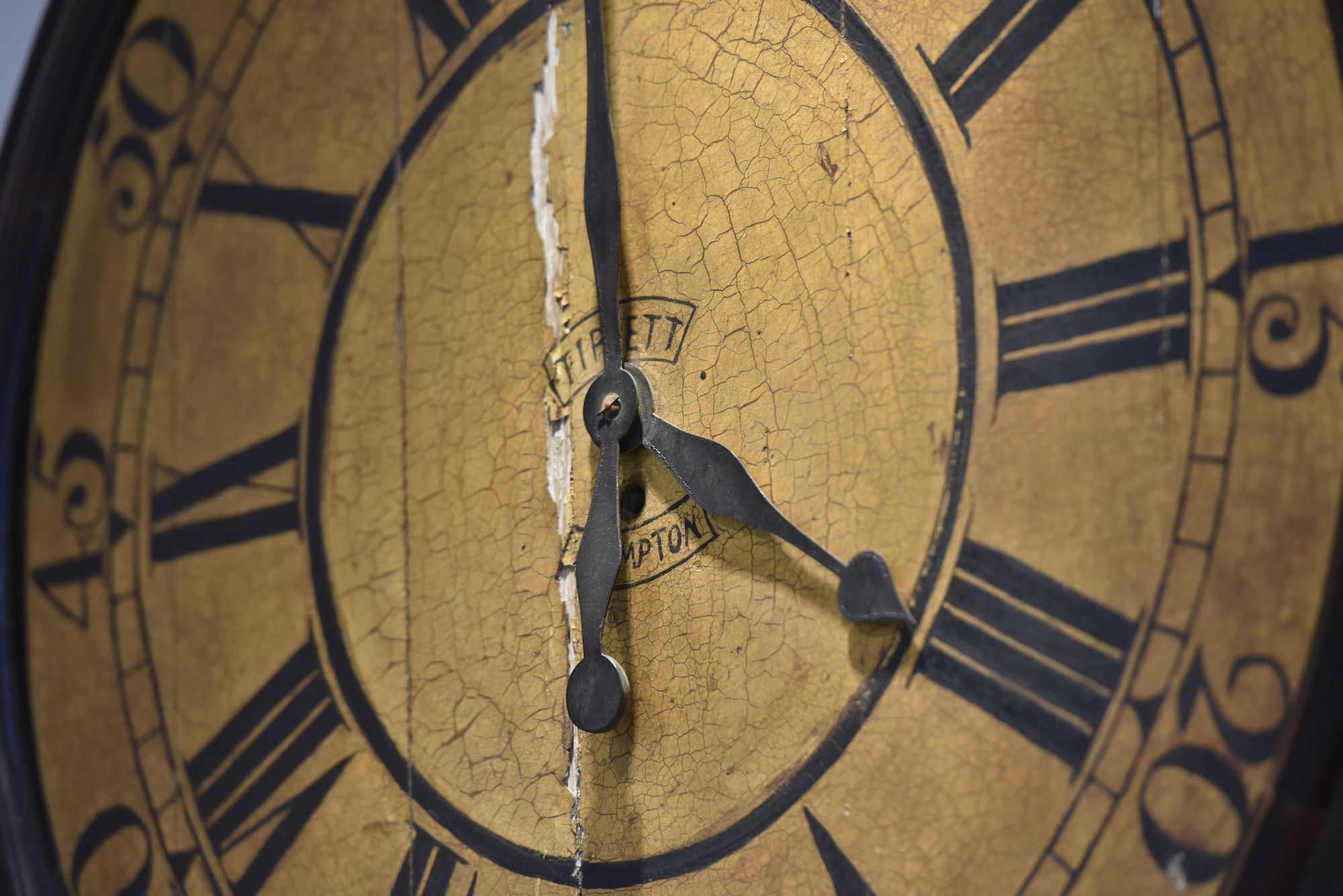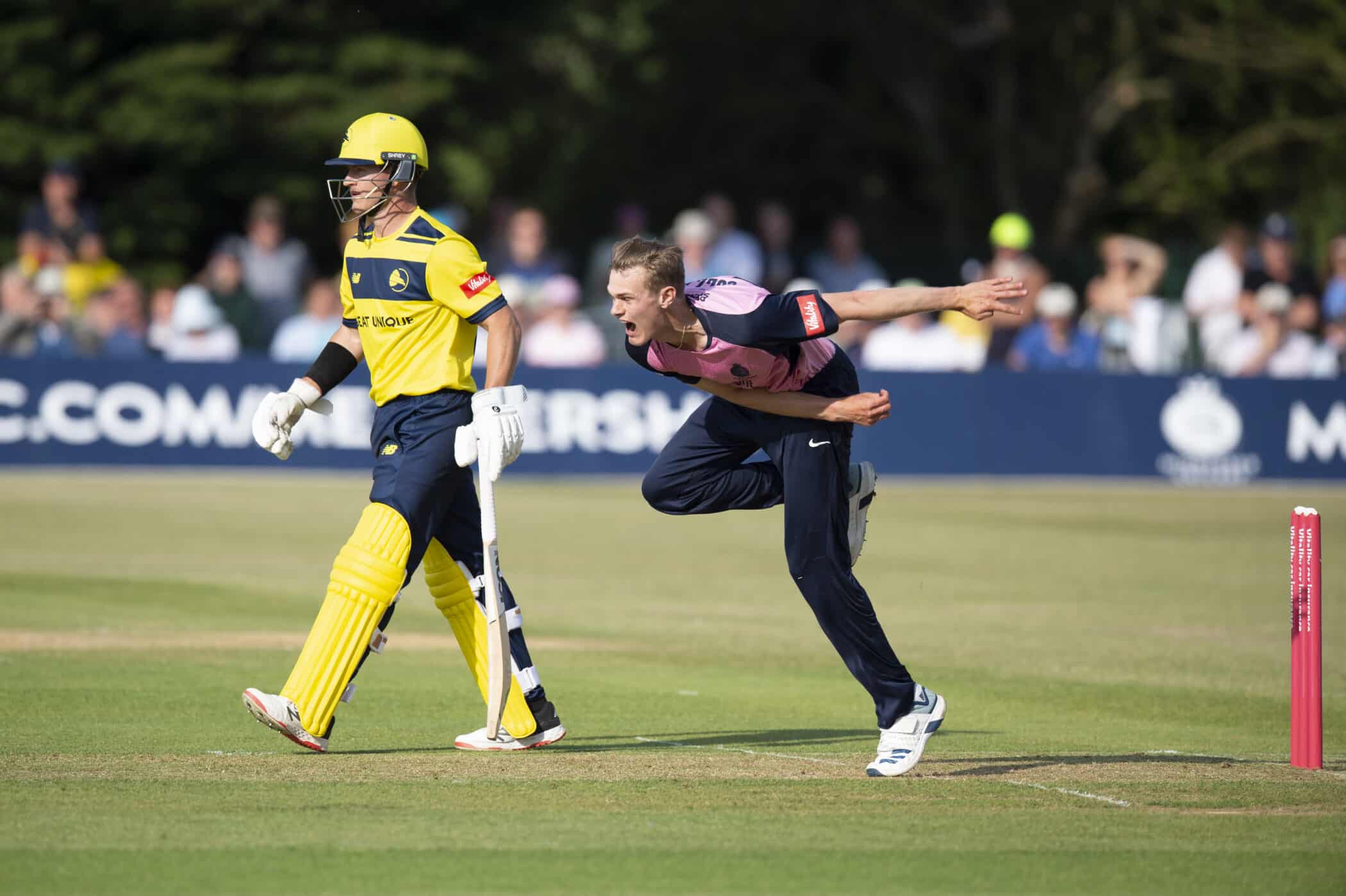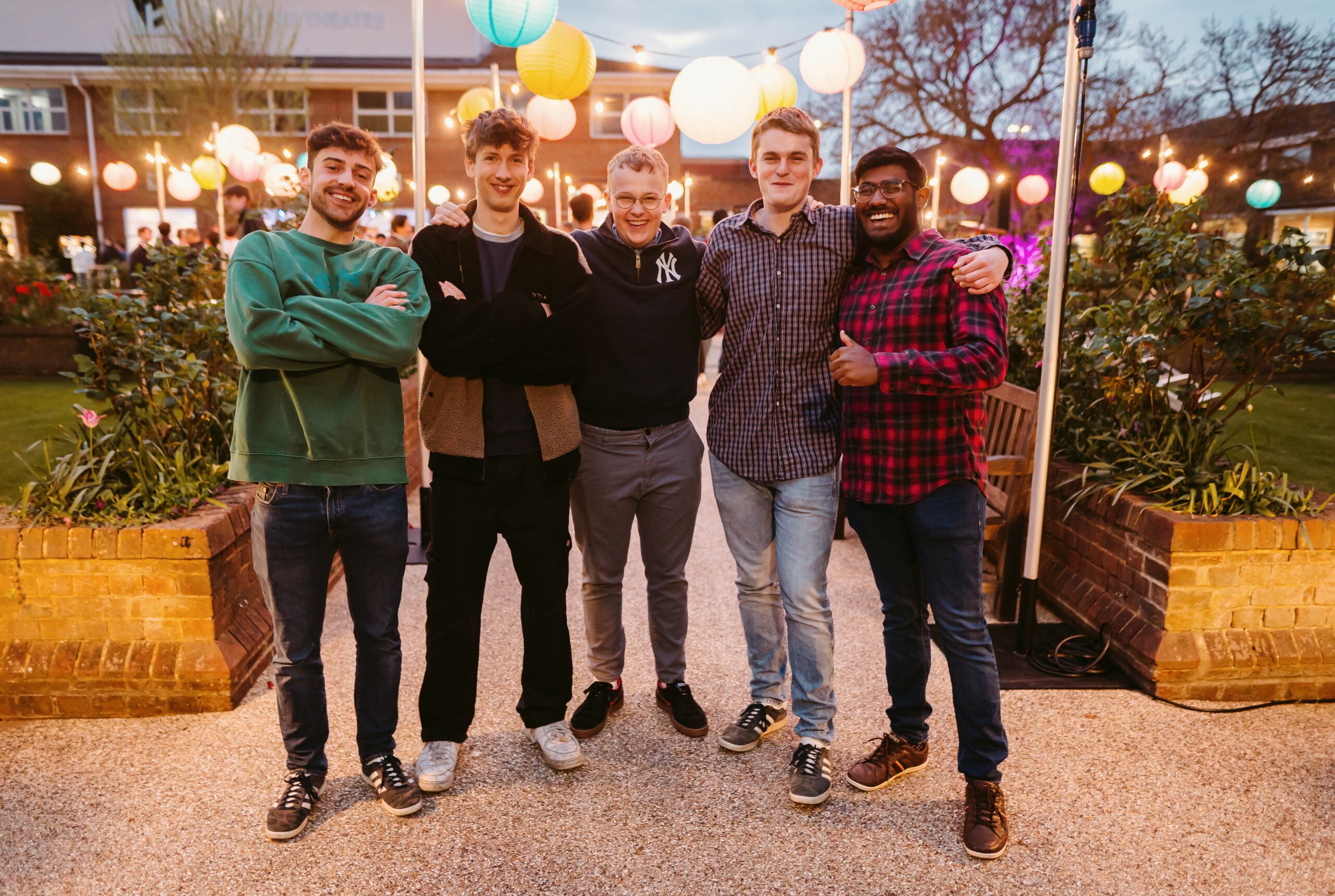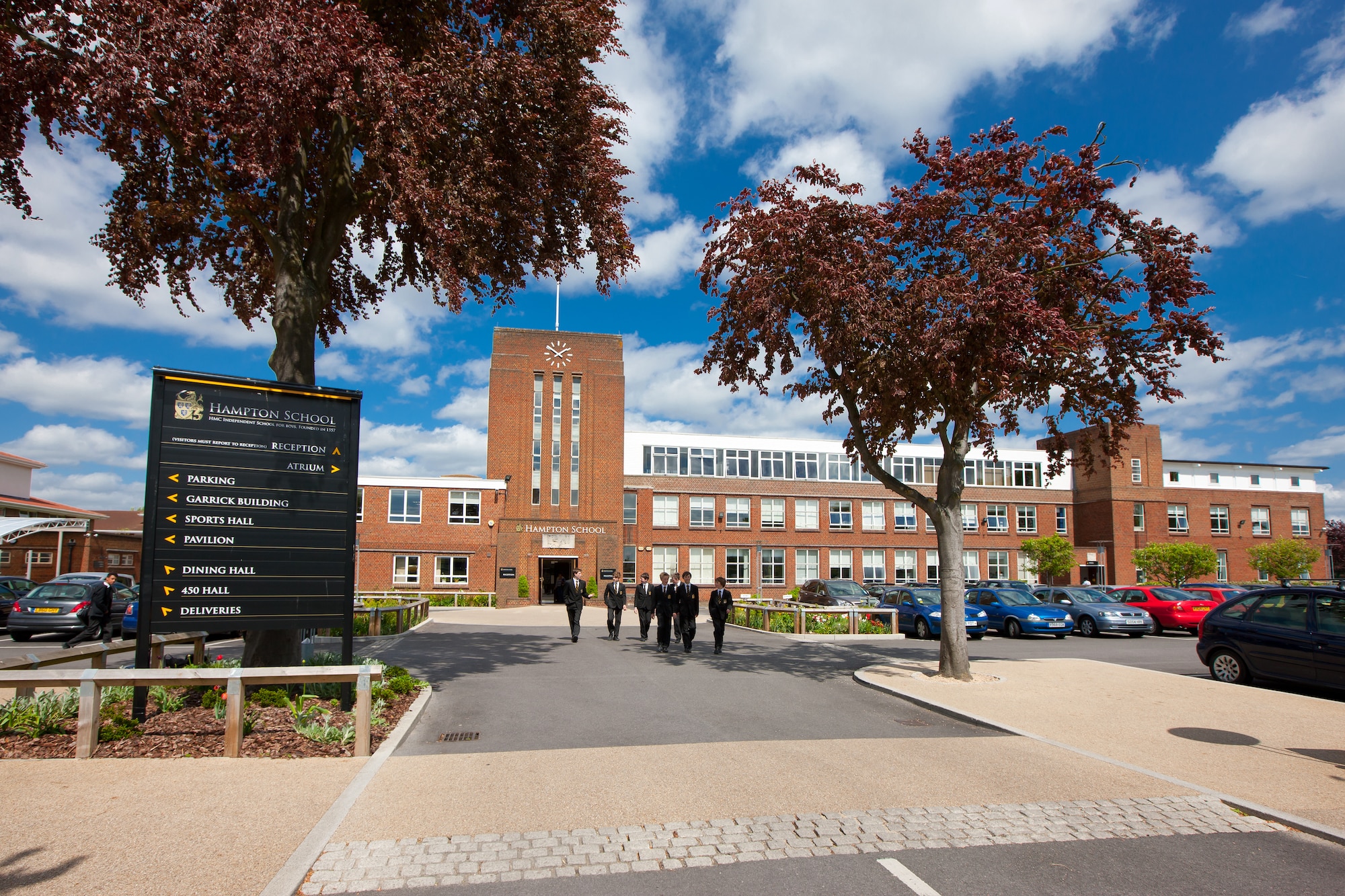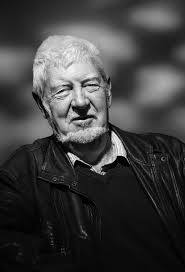
Professor John J. Lucas
1955
OH, poet, novelist, publisher of the Shoestring Press in Nottingham, Emeritus Professor of Loughborough and Nottingham Trent Universities, died in September 2025 at the age o...
Read More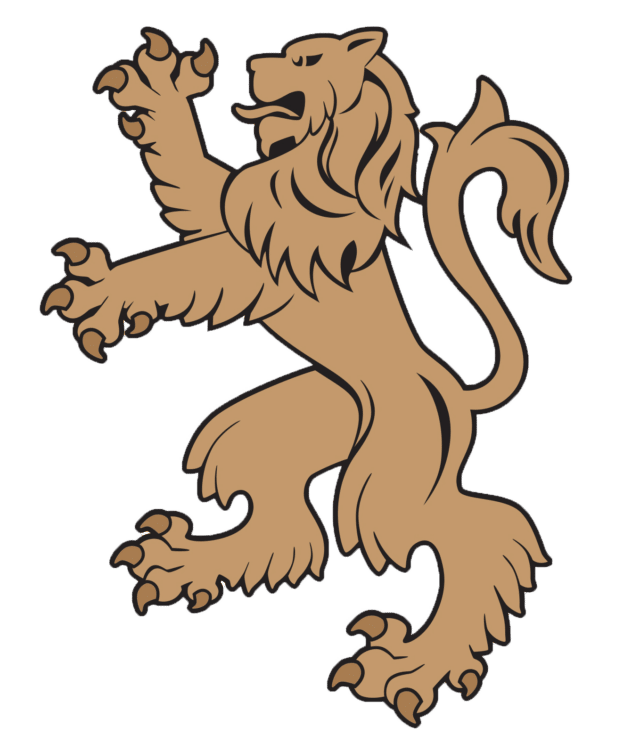
Brian Littlejohn
1961
Brian Littlejohn passed away on the 27 August 2025.
Brian not only represented the OHA Rugby Club in the 1st XV for decades but also stepped over the boundary line for...
Read More
Colin Jones
1952
Colin Jones OH (1952) died on the 14 August 2025, aged 91.
Mr Jones was at Hampton between 1945 and 1950. He is mentioned in the Lion for his sporting prowess, playing...
Read More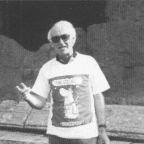
Joe Dalton
Common Room
Member of the Common Room 1968-1998. Died January 2025.
Eulogy by Colin Flood
I knew Joe for nigh on 55 years, longer than I knew my own father...
Read More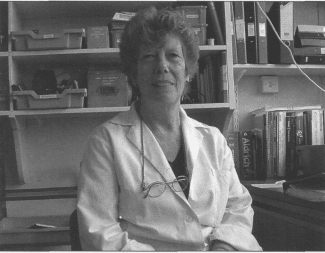
Val Horton
Common Room
Member of the Common Room 1977-2004. Died December 2024.
Memories from The Lion
Val Horton began her journey at Hampton in 1977, the S...
Read More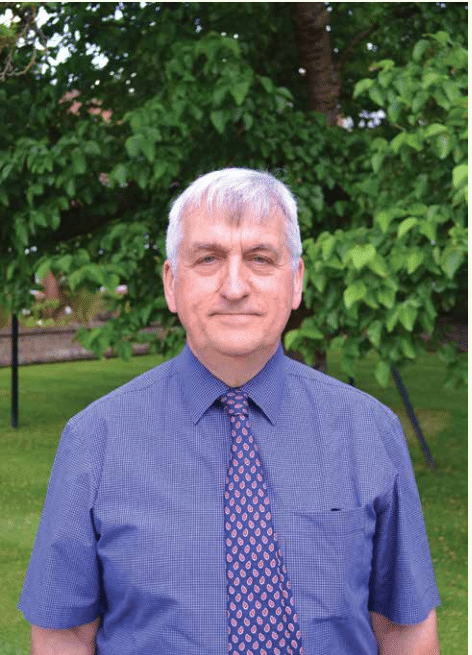
Mike Johnstone
Common Room
Member of the Common Room, 2002 to 2016. Died February 2025.
Memories from The Lion, 2016, written by Phil Langton
“Mike joined ...
Read More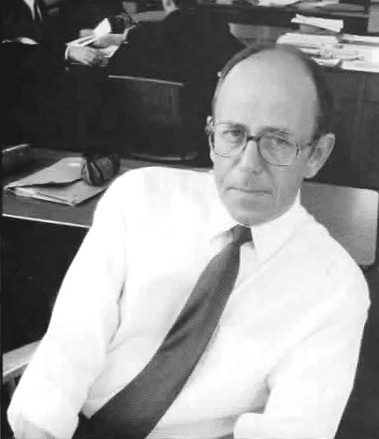
James Scouse (Jim)
Common Room
Member of the Common Room, 1972 to 1980. Died 2022.
Mr Scouse was known for his excellent productions as well as his involvement in trips and the CCF.
His entri...
Read More
Bob Gardiner
Common Room
Memories from Richard Hooper and Paul Walker
Bob taught History and his degree was from Emmanuel Cambridge where he went from Marling School, Stroud. ...
Read More
Jack Lanning
1952
Memories from David Greenaway
Jack Lanning died in 2023, We started school, St Mary’s, Amyand Park Road, Twickenham, on the same day in September 1939. ...
Read MoreProfessor John J. Lucas
1955
OH, poet, novelist, publisher of the Shoestring Press in Nottingham, Emeritus Professor of Loughborough and Nottingham Trent Universities, died in September 2025 at the age of 87.

Brian Littlejohn
1961
Brian Littlejohn passed away on the 27 August 2025.
Brian not only represented the OHA Rugby Club in the 1st XV for decades but also stepped over the boundary line for the Cricket Club. Following his playing career, Brian took over the Bar Manager position at the Clubhouse (or, as he knew it, the OH Pavilion), a position he maintained for over 20 years.
___
I had the privilege of playing three seasons with Brian Littlejohn for the OHRFC 1st XV between 1970 – 1973 and would probably have played for a lot longer had I not moved to Cardiff in 1973. I will remember fondly his friendship, patience and generosity of spirit.
Alec Davies OH (1970)
My first encounter with Brian was when OHRFC played the school 1st XV in 1960. We were soundly beaten – in part by Brian’s prodigious penalty kicks. As Club Secretary from 1958 to 1972 I was delighted to welcome Brian when he joined us on leaving school. He soon had a regular place in the 1st XV and, within a few years, had joined the Club Committee. His desire to serve continued for the rest of his life, holding various positions in the Rugby Club and the OHA.
Brian and I met regularly until I moved to the South Coast, almost 50 years ago, but we continued to correspond until the last couple of years. It was always a joy to meet up with Brian at the OHA annual dinners that I attended up to the last ten years.
Brian was a wonderful servant and an example to us all.
Michael Gray (1948-1955)

Colin Jones
1952
Colin Jones OH (1952) died on the 14 August 2025, aged 91.
Mr Jones was at Hampton between 1945 and 1950. He is mentioned in the Lion for his sporting prowess, playing in football and cricket teams, as well as racing in the swimming team. In 1950, he matriculated in his GSC, General School Certificate, with distinction in Mathematics. After his time at Hampton, Mr Jones worked in the UK and the USA before settling on the south coast of the UK.

Joe Dalton
Common Room
Member of the Common Room 1968-1998. Died January 2025.
Eulogy by Colin Flood
I knew Joe for nigh on 55 years, longer than I knew my own father. During those years he was many things, starting with a patient Head of Department, carefully helping and supporting a green young teacher to develop his own style of teaching not imposing his own.
He was in turn a genial and avuncular uncle, a father figure, a big brother and always, always a loyal steadfast and supportive friend to me, my wife and later on our children. In a world of uncertainties, his calm, considered measured and empathetic personality made him the obvious choice to be the godfather to our children, and that choice was not just ours, he was the chosen godfather to numerous of his friends’ families. It shows that many of us shared the judgement that this man was special.
He was a brilliant classical scholar, wearing his learning lightly and self-effacingly, he loved his subject. We could spend ages on our walks just talking about Latin poetry, Roman history, word in general and their derivations, nature, he was so easy to talk with.
He was a formidable linguist, fluent in French, Italian Greek and Russian. He had been selected by the RAF during his National Service to be trained as a Russian interpreter as part of the Cold War Signals Intelligence programme and developed a love and fluency in the language that was lifelong.
He was a keen sportsman, a gifted footballer, as many sixth formers discovered to their surprise, and a formidable fast bowler and batsmen who put many teams to the sword.
He was the officer commanding the RAF Section of the Hampton CCF and recruited me, something for which I am deeply grateful. And of course there was adventurous training on Dartmoor, a seminal experience in survival, self-reliance, navigation and teamwork that so many of the boys who went there remember with affection and pride to this day. Joe was always there – he never missed it, it was where his heart was.
His main love was the great outdoors. He was an indefatigable hiker and hill walker, tough and wiry, who had (as far as I was concerned) the annoying ability to float up hills and mountains which reduced me to a perspiring and reddened mess. We had a memorable walking tour of the Mani in Greece with his great walking buddy Bill Chaffey. He knew the hills of North Wales intimately and introduced me to many of them and patiently waited for me to catch up! After initiating Louise my wife to the Nantlle ridge in Snowdonia he quietly and gently commented that he’d “never been up it quite so slowly”!
He was at home in the hills
At Hampton he was an essential member of the adventure society, leading and assisting in Expeditions in Europe, Africa and Asia, which were so successful and valuable experiences for the boys, his primary reason for doing them.
He was a keen and well-informed birdwatcher. He didn’t like cats in his garden, one way to get him out of his chair was to innocently say “I can see a cat on the terrace” The effect was immediate, vigorous and very dramatic.
He loved music and gained great pleasure and contentment from it – he loved the string quartets of Beethoven.
However, it was as a schoolmaster and Head of Lower School at Hampton that his importance lay. His patient, firm and humane style and character engendered enormous respect and affection from the boys and all his colleagues. He was seldom wrong-footed. He made those around him feel secure. I think the only time I saw him discombobulated was when a newish first former waiting to see him outside the common room innocently and quite naturally called out “Daddy”.
Barry Martin, Headmaster at Hampton towards the end of Joe’s career wrote: “Although Joe and I overlapped by only four terms, I got to know him pretty well and he was a boundless source of Hampton wisdom and kindness and became a sound adviser. When I was researching for his retirement dinner, a retired deputy head described him as ‘the archetypal lovely man’ . Bingo! Our lovely, gentle, generous and precious Joe in a nutshell.
____
I have just read with fond memories about Joe Dalton who was my Latin teacher as was Colin Flood, for a while. Never a good linguist then or now although stints abroad demanded I try (I’ll probably be learning French for the rest of my life). I made the mistake of getting 51% after the first year of study. If you got more than half marks you were destined to do Latin for two more years. In the end I was grateful to be allowed to sit near the back and do very little; a lost cause.
Stuart Norman OH (1979)
____
I was sad to hear the news that Joe Dalton had died.
I taught Classics at Hampton from 1966 -1970, so I was ‘in situ’ when Joe arrived to take over from Cyril Mulley.
In my view, Joe was an exemplary teacher and head of department. His interpersonal skills were outstanding. He was quietly spoken, a genuine listener and widely respected by staff and pupils alike. I am sure you will receive similar comments from other colleagues.
Peter Boreham
____
Joe Dalton was my form master when I arrived at the school in 1971. Taking Latin A-level and the Oxford exam, he taught me during my last two years, from 1976-1978.
Masters of course had reputations among the boys as to their teaching abilities and their approach to discipline (excessive, reasonable or weak). A positive recommendation was the qualification, ‘a good bloke’. Joe Dalton was definitely a ‘good bloke’, indeed one of the very best.
In terms of teaching, humour and common decency, he was first class. It seemed that he never had to raise his voice to command attention or impose order on the class. People were afraid to disappoint such a ‘good bloke’ and knew that, whenever he spoke, it was worth listening to.
He taught me so well (along with Messrs Flood and Parr), that I took Latin at university and still use the knowledge almost 50 years later.
Fond, fond memories…
Jeremy Stubbs (MA, DPhil) OH (1978)
___
I am deeply sorry to hear of Mr. Dalton’s passing. He epitomised everything about Hampton—a gentleman, a giant of a man, kind, caring, compassionate, and nurturing.
I remember him with much fondness from my time at the school.
Marc Brunel-Walker OH (1993)
__
My first contact with Mr Dalton was before I even began at the school. It would have been the Summer of 1984 I think, and I remember it being a Sunny day when my parents took me to my entrance interview at Hampton. I don’t know if they interviewed everyone in those days, but my parents had applied for a place under the Government Assisted Places scheme. Mr Dalton took my interview that day, and I remember it being in what I think was a maths room often later occupied by Mr. Orr on the first floor in the little corridor to the right if you went up the West entrance staircase, so that corridor overlooked where the Atrium building is now. I’m not sure I was in that room very often in my school career, so my memories of it are fixed in that moment. I was obviously nervous, but Mr. Dalton was kind and gentle and asked questions that helped get the answers out of me and allowed me to show what I knew, but more importantly what and how I thought. I remember him patiently listening as I stumbled through my logic in answering questions and then prompting me if I seemed to get stuck as we worked our way through to my final “educated” guesses! I have just spent quite a bit of time in the last week attempting to perform the same task the same way with a final year undergraduate cohort on a cell biology module here at UCL, asking them to think their way through things and gently guiding them when they get stuck, so it’s a lesson I like to think I’ve carried forward from that day to this, and one I’m grateful for.
After that Mr. Dalton never taught me but I always had a soft spot for him, and he did lead a First Year trip to Wales I went on and remember fondly as well.
Ian White OH (1991)
___
It was with great sadness that I learned of the passing of Mr Dalton. He was one of the first teachers that brought out the highest grades in me in Latin and was inspirational in improving my enthusiasm and fitness at my ‘remedial’ level of sport. Once in about 1982, he happened to speak to my old primary school mistress, Mrs Barbara Lane who on randomly crossing paths with me told me that he had said that I was getting on so well at Hampton. My mind naturally turned to the excellent grades that I was belatedly attaining in Latin but no, the cause of his praise for me was that I had scored a goal with my knee.
Well like the consummate No 9 that I am most certainly not, I’ll take that Mr Dalton; they all count in the record books.
Karl D’Souza OH (1995)
___
Joe was my ‘O’ level Latin teacher. He was very good and occasionally we had some non-related discussions where he shared some of his memories. One was when he worked in a Coca Cola factory at the time when 2 inch thick crepe soled shoes were in fashion. He told us that whatever they put in the drink, some would inevitably spill onto the factory floor and a pair of 2 inch thick soles would last no more than 3 months. I have always remembered this story.
Paul Denhart OH (1975)

Val Horton
Common Room
Member of the Common Room 1977-2004. Died December 2024.
Memories from The Lion
Val Horton began her journey at Hampton in 1977, the Silver Jubilee year, and is leaving 27 years later as one of the longest-serving members of the school community. She worked in both the Chemistry and Biology departments, most fondly remembered as Head Technician in Biology. Over the years, she witnessed the department grow from two to six laboratories and the teaching staff increase to nine.
Val adapted to significant changes in the curriculum, including preparing equipment for genetic manipulation experiments. Her readiness to embrace new challenges was evident throughout her tenure. During a recent inspection, the Biology inspector praised the enormous support provided by the technicians, highlighting Val’s invaluable contribution.
The prep room, overlooking the school fields, was the department’s hub, and Val’s cheerful, calm approach ensured its smooth operation. She was always ready to help, especially when it involved brewing tea! Val was a fantastically valuable member of the department, and her departure is deeply felt by all.

Mike Johnstone
Common Room
Member of the Common Room, 2002 to 2016. Died February 2025.
Memories from The Lion, 2016, written by Phil Langton
“Mike joined Hampton in 2002 after a long and successful career in film production, particularly in science programming. Perhaps his greatest strength has been his ability to keep up with all the very latest research and new developments taking place in Biology; for a man about to retire, I think that is a pretty impressive trait and we will have to work hard to replace him in this respect. This passion for the new has also translated into a desire to purchase new equipment for the Department. Whilst I wholeheartedly agree that the subject must not stand still in an age when marching ever-forward seems to be the only answer, I am still not convinced about the buzz-box, which allows us to detect nervous impulses from a cockroach once you have pulled one of its legs off. Equally, did we really need a technical microscope that is so technical it needs a technician to come with it to make it work?
“Another of Mike’s great talents has been the immense care he has always shown the boys in his charge. Both in the classroom and also as an accomplished rowing coach, Mike has often been our father-figure to some of the boys and I know that many have really benefited from his old-school approach to teaching. Field trips are a key part of Biology and I would like to thank Mike for coming along to Pembrokeshire on many occasions. Rock pools being a key feature of the rocky shores we have visited, I have had to bite my tongue when first one of them swallowed up his brand new digital camera and, the following year, when his high-tech, new waterproof coat proved to be so waterproof that his iPhone took a bath in one of his pockets on a particularly wet day counting limpets.”
Memories from David Perfect
I joined Hampton School at the same time as Mike. He had completed his teaching qualification via the Graduate Teaching Programme ( GTP) the previous year and was so helpful n guiding me through my GTP. Superbly organised his examplars of the evidence I had to collect and the manner in which it had to be presented made my little fe so much easier. And, all of this s came at his instigation. It was an act of great kindness and generosity. We went to work closely together, Mike being one of my leading Sixth Form tutors. He once told me that his inspiration for Biology and the natural world had come from an outstanding teacher whilst he was a pupil at Abingdon School. That teacher would have been proud to know just how inspirational his student had also become.
Memories from John Slater
So sad to read about Mike Johnstone. He was a great person to have at the school. Someone who clearly had lived and worked a lot before teaching. He was a very genial and wise colleague who I am sure was a source of inspiration for so many pupils over the years.

James Scouse (Jim)
Common Room
Member of the Common Room, 1972 to 1980. Died 2022.
Mr Scouse was known for his excellent productions as well as his involvement in trips and the CCF.
His entries in The Lion suggest an educator who enjoyed a challenge. In 1978, Mr Scouse produced the Alan Bennet play Forty Years On, which was reviewed in the summer’s edition of The Lion: “Mr Scouse’s production was not simply a series of comic turns: he had the measure of the play’s complex structure and its changes of tone. […] The play was very entertaining, the amount of hard work on the parts of stage crew, cast and the producer Mr Scouse, being justified by the performance and appreciated by the audience.”
Jim was hugely supportive of pupils. In 1979 the introduction of a new Sixth Form common room was much improved by the addition of “a couch, a gift from Jim Scouse”. During his time at Hampton he led trips to Snowdonia, Dartmoor, Jersey and the Isle of Man, among others. On one such trip, he was thanked “for the Spaghetti Bolognaise”! His name is also mentioned as part of The Lion‘s editorial team several times.
After leaving Hampton, Jim Scouse went on to work at Sevenoaks School and retired to Luxor, Egypt.
Memories from Dr Stephen Moss, Naturalist & bestselling author
Bespectacled, with thinning hair and a quizzical half-smile, Jim Scouse was one of a new generation of young and enthusiastic teachers who arrived at Hampton in the early 1970s. He somehow managed to enthuse our cohort of idle, cynical and unmotivated teenagers about the hidden delights of English language and literature.
I first came under Jim’s influence in my third year at Hampton, when to my amazement I came top in English. From that day on, he took me under his wing, making me realise that, if I worked hard, I could achieve a place at university – and hopefully a worthwhile career.
Later he recruited me as editor of The Lion, following in the footsteps of the energetic and gifted Bob Scrase. Having never before contributed to the magazine, I wrote an epic account of a Rolling Stones gig at Knebworth – one of the most memorable days of my young life.
I could hardly contain my excitement when the magazine appeared. But as I leafed frantically through the pages, there was no sign of the article. I sought out Jim and asked him why it wasn’t there. “I’ll be honest”, he replied. “If this were an A-level essay you’d have got an A-grade. You’ve got all the details – from the moment you left home to the final encore”.
I must have looked puzzled. “But that’s the problem”, he continued. “There’s no proper story, no twist in the tale, just a list of facts. You didn’t think about making it entertaining”.
The penny dropped, as it dawned on me that I needed to tell stories that would engage and entertain the reader. His harsh – but entirely fair – verdict launched me on a lifelong career as a writer.
After leaving Hampton in the early 1980s, Jim ended up as deputy housemaster at Sevenoaks in Kent, before retiring to Luxor in Egypt, where he spent the last years of his life. The many heartfelt tributes since his death, from former pupils at both schools, reveal the huge affection in which this remarkable teacher and fine man was held.

Bob Gardiner
Common Room
Memories from Richard Hooper and Paul Walker
Bob taught History and his degree was from Emmanuel Cambridge where he went from Marling School, Stroud. I can’t remember which year he left to go to be head of History at Battersea Grammar School, I would put it around 1977.
After Battersea, Bob was ordained as a Baptist Minister in Cardiff. He retired to Cirencester and was a great supporter of Gloucester Rugby up to a few weeks before he died in 2024.

Jack Lanning
1952
Memories from David Greenaway
Jack Lanning died in 2023, We started school, St Mary’s, Amyand Park Road, Twickenham, on the same day in September 1939. Of those that matriculated in 1945, only Jack and I chose to go to Hampton. I was A stream and Blackmore House. I think Jack was C stream and Garrick House. We stayed in touch until his end. Before retirement he had a windsurfing shop in Weston super Mare.
WITH JACK LANNING AT HAMPTON
Only six or seven of us out of 40 passed the 11-plus examination in my class at St Mary’s, Amyand Park Road, school and only Jack and I chose to go to the boys’ school, Hampton Grammar School (now Hampton School). I was put into the A stream (and Blackmore house) and I think that Jack went into the C stream (and Garrick House). We cycled the nine mile round trip together, six days a week, for seven years, and on some Sundays as well for ATC parades. All pupils went to school by bicycle, on foot, or a combination of bus and walking, mainly by bicycle. No buses went past the school. My diaries show that for our first five years there we were never late for school: only one very icy morning spoilt this record. A note from my 1950 diary – “14 December: roads very icy in the morning. Jack and I fell off twice”.
We both joined the Air Training Corps, 651 squadron, and learned useful things, like how to strip down and reassemble a Browning machine gun! The ATC was run by Harry Crocker (senior physics teacher) and Mr Barton (senior mathematics teacher). In 1949 we went for two weeks to Manston Airfield, in Kent. It was a front-line fighter station during the war. I had my first flights there, in Avro Yorks and Ansons
Diary entry for 28 April 1951 – “we went to Fairoaks airdrome after school, (7 of us) and we got ½ hr flying each in Chipmunks (RAF VR trainer). Alone with the pilot; dual controls; we did a loop”.
In July we went flying at Fairoaks again; this time 30 minutes in a Tiger Moth – biplane, open cockpit, great experience. Later that month there was an ATC camp at Thorney Island. I went with Jack to Hayling Island funfair one afternoon. While at the camp we went for a 2 ¾ hr flight in an Anson to Bideford.
The other away activity with the ATC was rifle shooting, this was mainly at the range in Egerton Road, Twickenham, just at the bottom of Jack’s road, Court Way. The diary entry for 14 January 1952 was “Jack’s birthday. Went shooting (2nd round L.M. Trophy)”. In May we shot in the ‘Battle of Britain’ trophy competition. These were .22 bore rifles, but on one occasion we shot at Bisley, just for the experience, .303 bore – noisy things with quite a kick.
Of course, most of the time that I spent with Jack was out of school hours, but these are my school memories of us.


